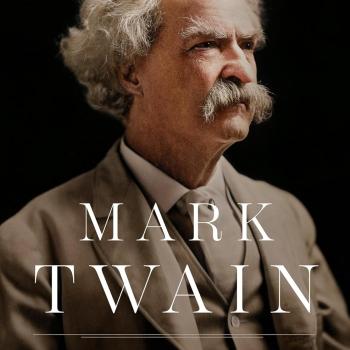Sometimes it's all too much.
I know that.
Believe me, I know that.
Last week was tough. Tough for all of us, I know, who followed the news of the latest act of terror against the U.S., but especially hard in this part of the world because of the devastating and deadly explosion in West, Texas, only ten miles from Baylor University, where I teach.
Friends from Baylor lost friends, homes, schools. Once again, those of us in central Texas were shocked to realize that we aren't safe from death and destruction. For decades, West has been a much-loved travel stop known for Czech foods and pastries, a place full of decent, hard-working people, and it's hard to believe it could become yet another site where grief has become general.
In fact, what with Boston and West and the earthquake in China, toward the end of last week, I had to stop, take a breath, and turn off my news feed. And it occurred to me that maybe, this week, the best thing I could offer any of you reading are some thoughts on how to process all the bad that enters the world some weeks, on how we might be spiritually healthy in the midst of pain that sometimes feels as though it touches way too close to home.
I know it's hard.
Believe me, I know it.
I walked down Boylston Street in Boston, passed by the site of the marathon explosions a few months ago.
I ran a 10K race with 20,000 other runners a few weeks ago.
I stopped at Stormy's Pizza Ranch and for kolaches at the Czech Stop in West, Texas plenty of times over the years, and I know exactly where the fertilizer plant—and the retirement home—used to be.
But—reality check—I was not on Boylston Street last week during the Boston Marathon.
And my race was bedeviled only by the usual problems with stamina and hills, not with violence.
And I was ten miles away from West when the fertilizer plant went up, was headed the opposite direction on the Interstate as emergency vehicles surged north.
Since I wasn't myself directly harmed by these tragedies, the first piece of wisdom I might offer is that however strongly we might feel affected by violence and random tragedy, if you are alive and your family is unharmed, praise God and do something for those who are truly suffering.
Even if you are freaked out—as I am freaked out—by near misses, the Angel of Death passed over our houses, my friends, and so we have a responsibility to pray for victims, to give blood, to offer food and blankets, to work so that something like this might not happen again.
Second, if you find yourself hyperventilating over the ever-escalating bad news, as I did last week, you might want to do as I finally did: cut yourself off.
Cold turkey.
Do it.
Remember when we sat on September 11th and 12th and 13th, 2001, watching the same footage over and over again, listening to the news nonstop, reading everything we could get our hands on even though most of what people knew was speculation—and wrong?
It is more possible than ever before for us to take in too much bad news—or to get an adrenaline fix from following breaking bad news. And frankly, it may be emotionally and spiritually devastating for us. It certainly was for me last week.
What ultimately pulled me out of my funk was paying attention not to news, but to the people I love. I spent time with my boys, with my girlfriend and her daughters, with friends.
I celebrated them, celebrated with them, and maybe you should do the same. Hug the ones you love. Hold them close. Tell them how much you love them, how glad you are that they are alive.
Finally, I sought last week to remember that in my tradition the mark of true faith is a sense of peace, the peace that Jesus promised in opposition to fear, the peace of the Comforter Jesus promised when he left.
Peace.
Be still.
When the world is raging and our thoughts are raging along with it, it's hard to be a person who seeks and finds peace.
I know it.
Boy, do I know it.
But I also believe that Jesus meant what he offered.
"Peace be with you," he said.
"My peace I leave with you," he said.
The peace that passes human understanding—the peace that sometimes seems so elusive on weeks when terrorists are killing innocents and entire towns are being laid waste—is the fruit of prayer, practice, love, gratitude.
So prayer for you and for me is a sense of peace, the peace that comes from our awareness that whatever happens, God will be beside us, and will never ever stop loving us.
No matter what.
No matter what.
4/23/2013 4:00:00 AM





